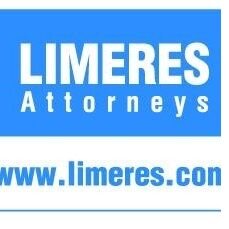
LIMERES, Argentina Inheritance Lawyers
Free Consultation: 15 mins

Share your needs with us, get contacted by law firms.
Free. Takes 2 min.

Free Consultation: 15 mins
In Buenos Aires, Argentina, trusts are valuable legal tools for managing assets. Trusts are regulated by the Argentine Civil and Commercial Code (CCC), taking effect from August 1, 2015. They can be setup for variety of purposes including estate planning, asset protection, business structuring and investment purposes.
Whether you're planning your estate or considering a complex business transaction, a lawyer could provide crucial assistance. Legal professionals can help you understand the potential financial and tax implications of setting up a trust and ensure that the trust deed is appropriately drafted. Moreover, in case of disputes or legal issues concerning a trust, you may need a lawyer’s guidance to navigate the process and protect your interests.
According to the CCC, trusts in Buenos Aires must fulfill certain conditions. A trustor must hold existing rights over the assets placed in trust. The purpose of the trust must be legal, possible, and certain. The regulations also include provisions about the roles and responsibilities of the trustee, beneficiary rights, and the termination of a trust. Trusts in Argentina are typically subject to federal taxation, and may impact inheritance and wealth taxes, so understanding the intricacies of these implications is crucial.
Yes, there are no legal restrictions preventing the same person from being both the trustor and the beneficiary.
That depends on the terms set out in the trust deed. Trusts can be either revocable or irrevocable, which determines whether the trustor can terminate the trust without the consent of the beneficiary.
Trusts offer several benefits over wills, including potential tax benefits, simpler asset distribution, and avoidance of probate proceedings. However, the choice between a trust and a will depends on individual financial and family circumstances.
A trust typically ends upon the occurrence of a specific event stated in the trust deed, such as the death of a beneficiary, or the fulfillment of the trust's purpose. A trust can also be terminated by mutual agreement between the trustor and beneficiary, subject to the terms of the trust deed.
The Argentine Civil and Commercial Code governs the formation, operation, and termination of trusts, while the Federal Administration of Public Revenues (AFIP) oversees the taxation of trusts.
The Federal Administration of Public Revenues (AFIP) website has resources related to tax regulations for trusts. The Buenos Aires Bar Association may also provide information and resources on trust law in Argentina. Additionally, online legal forums and websites may provide helpful general information about trusts.
For detailed and personalized advice on trusts in Buenos Aires, it’s best to consult a qualified, local attorney specializing in trust law. They can guide you through the process, highlight potential pitfalls, and ensure your interests are effectively represented. You should research potential lawyers, check their credentials and, if possible, arrange a preliminary consultation to see if they would be a good fit for your needs.